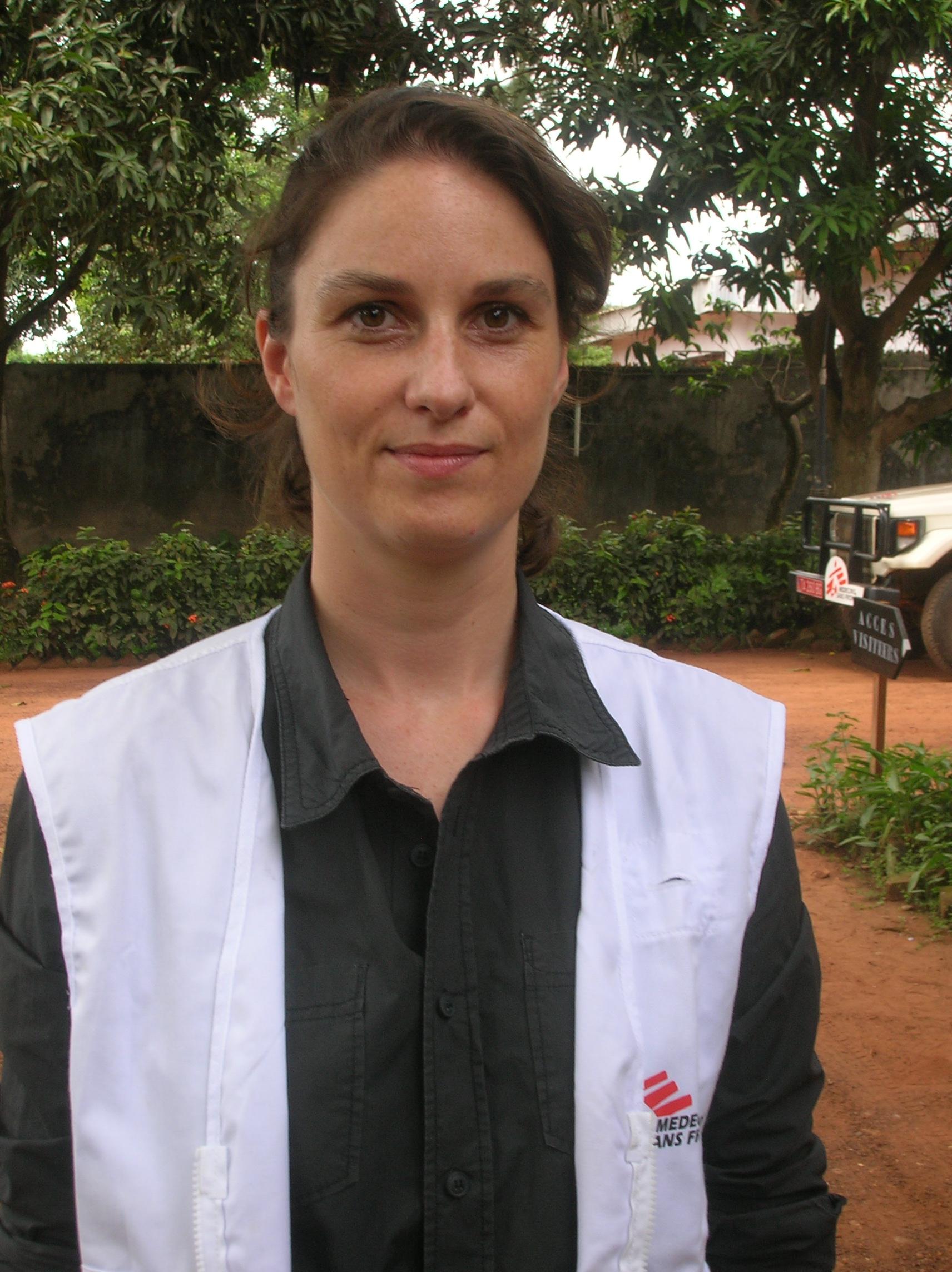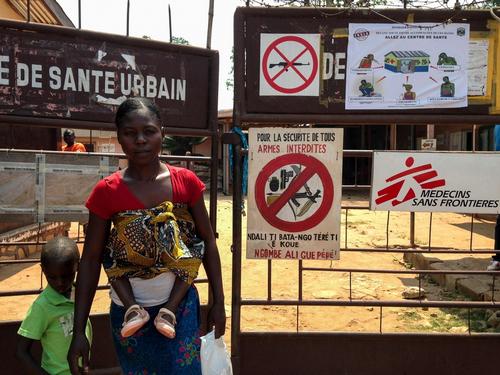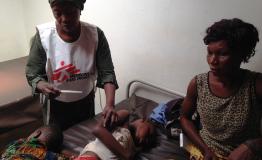Between October 7 and 17, civilians in Bangui, the capital of the Central African Republic (CAR), again experienced violent clashes and abuse. It was very difficult for MSF teams to reach the wounded and provide aid during that period. It was also difficult for patients – whether ill or victims of violence – to reach health care facilities. For MSF, one of the direct consequences of those 10 days of violence was an unacceptable reduction in humanitarian space in the capital and throughout the rest of the country. Delphine Chedorge, MSF’s head of mission in Bangui, looks back at those days.

Why did violence break out again in Bangui in early October?
“Political tensions rose sharply on October 7. The anti-Balaka demanded the resignation of the CAR’s president, who was accused of corruption. Several days later, the ex-Seleka took up the same demand. And that night, an isolated grenade attack triggered clashes in the capital. The MSF team treated 13 wounded people at the General Hospital. One of them died. While inter-communal violence did occur, most of the clashes were between armed groups and international forces.
The United Nations reported that between October 7 and 17, 13 people were killed and 242 were wounded. Approximately 6,000 people were displaced and 1,600 new refugees were registered in the Democratic Republic of Congo (DRC).
What was the situation during those 10 days?
When the clashes broke out again, the situation was explosive throughout almost the entire city. It was very difficult to deliver assistance and obtain access to care. Bangui was controlled by a host of armed groups. Attacks, ambushes and reprisals were carried out regularly, including close to our living quarters, health care facilities and offices. The streets were empty. The city seemed paralysed and dead. Taxis, motorbikes and private cars were prohibited from operating.
Because of the insecurity, threats and barriers erected in the city, some organizations could not travel in their vehicles. Our teams – expatriate and Central African – had a lot of trouble getting around. As a result, for five consecutive days, our teams could not reach the PK5 neighbourhood, which was particularly affected. MSF supports a clinic there where we regularly provide paediatric care.
During one of our trips, a terrified woman rushed toward our car. She was carrying a wounded child. In the car, we realized that he was already dead because he had not reached the hospital in time. It is quite likely that other patients and wounded people were trapped at home, and even died, because they lacked transportation or were afraid to leave the house.
It was difficult for us to work and reach the ill and wounded. Humanitarian space in Bangui and, more generally in the CAR, has been reduced to an unacceptable degree. During those 10 days of violence, aid was cut off and blocked. Other aid actors, such as the Red Cross, were threatened and prohibited from collecting bodies or transporting the wounded. Six security incidents targeting humanitarian workers directly were reported during that period.
What was MSF able to do?
During those 10 days, our teams still managed to treat 90 wounded people at the General Hospital, 54 at our M’Poko clinic and 16 at the Castor Hospital. Those people had received primarily bullet and grenade, but also machete, wounds. Most of them arrived on their own, sometimes several days after being wounded.
Medical supplies and drugs had been sent to the General Hospital, the referral hospital, where the action plan in the event of a massive inflow of wounded patients had been launched and strengthened. Forty-eight hour shifts were organized so that the Central African employees could sleep and eat at the hospital, without exposing themselves to the violent clashes in the streets. These medical staff handled the emergencies, knowing that their own families were particularly exposed in certain neighbourhoods. It was extremely difficult for them.
What is MSF’s assessment of what happened during those 10 days?
The nature of the clashes in October was different from that of previous months. The increase in the number of acts of banditry and the strategy of the armed groups – that is, to strangle basic services – threatened aid efforts, which are critical in the CAR. All public services in the country, and particularly health services, are increasingly weak. Although MSF was not targeted directly during the most recent clashes, the ongoing reduction in humanitarian space in Bangui and throughout the rest of the country deprives the population of emergency assistance and endangers the teams.
MSF has been a key health actor in the Central African Republic since 1997. We have become even more important since the country and its health system are experiencing a crisis again. Even a partial pull-out on our part, at the annual peak of the malaria season – an illness that is more deadly than the current violence in the CAR – penalizes a population that has suffered terribly and that we have been assisting, on a heightened, ongoing basis, for nearly a year. Without treatment, children, who are malaria’s first victims, could die.
What is the current situation in Bangui?
While some humanitarian organizations still cannot carry out their work, “normal” life and activities resumed in Bangui as of October 20, at least during the day. After 6 pm, robberies begin (or resume) and vehicles can no longer drive on the streets. Many residents, including Central African humanitarian personnel, witness the nightly looting of their houses and must shelter their families at the displaced persons’ sites, where living conditions remain very precarious.
The armed groups currently deployed and taking action in Bangui and across the country, as well as the entire population, must respect the teams, facilities and vehicles delivering aid, as well as the right of the ill and wounded to obtain care safely. This is the not the first time that MSF has issued this call, but we will keep trying to hammer it home. Bangui may be ‘calm’ again, but it is hardly a peaceful city and we can expect more violence.”
MSF has been working in the Central African Republic since 1997. We have doubled our medical assistance there since 2013 to respond to the current crisis and have increased the number of projects from 10 to 17.





